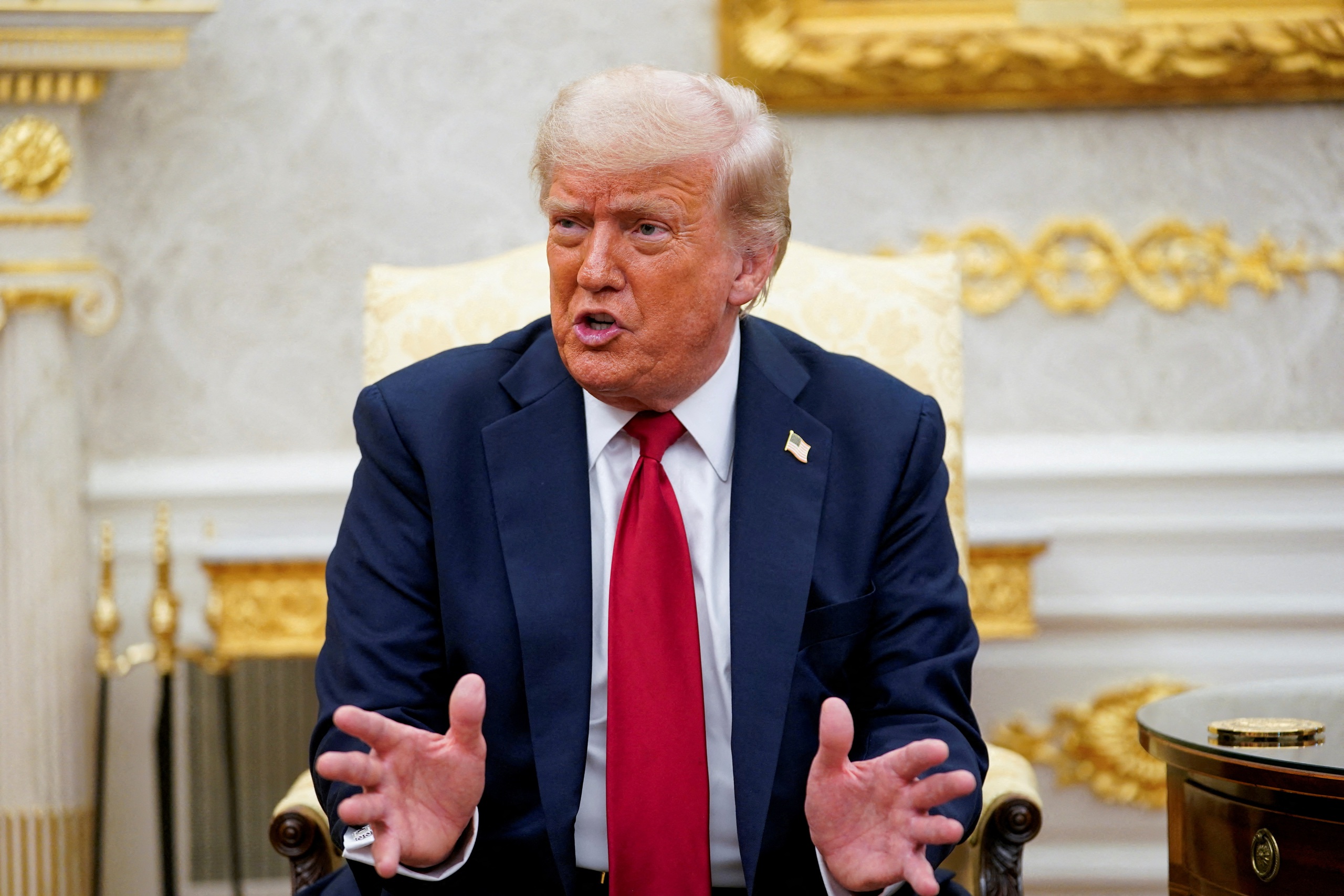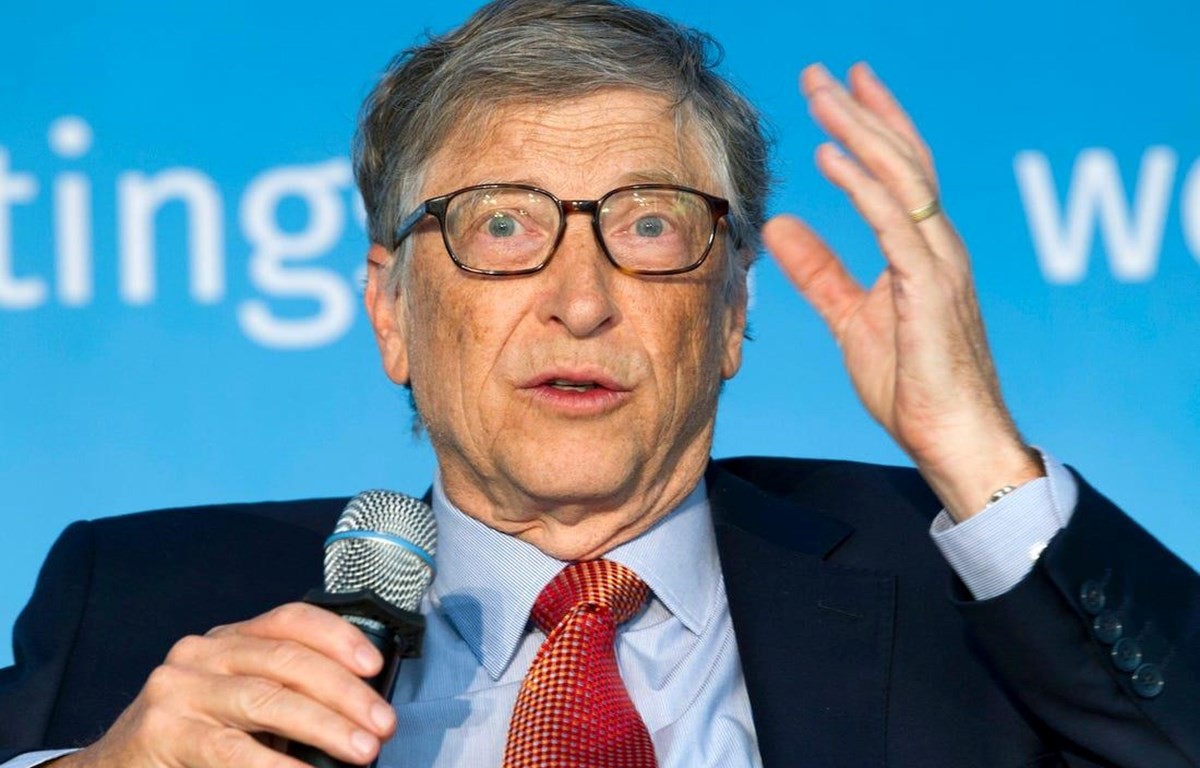
Bill Gates, the billionaire philanthropist and founder of the Gates Foundation, has sharply criticized President Donald Trump’s decision to cut back on foreign aid, warning of the severe consequences that such reductions are having on global health, particularly in Africa.
Gates, who has been a staunch advocate for international development and health initiatives, pointed out that the cuts were not only devastating but also preventable, urging the government to reverse these policies before further harm is done.
Gates emphasized that the drastic reductions in aid have led to significant shortages in life-saving medicine and medical supplies, such as HIV treatments and oxygen ventilators for newborns, which have caused deaths that could have been avoided.
The foreign aid cuts made by Trump’s administration, including a significant reduction in funding for organizations like USAID (United States Agency for International Development) and PEPFAR (President's Emergency Plan for AIDS Relief), have had a ripple effect, crippling vital programs that provide health services and education to the world’s most vulnerable populations.
Gates, known for his partnership with USAID and his continued work in global health, expressed deep concern about the ramifications of these cuts. His foundation has invested billions of dollars in global health and development, much of it in collaboration with USAID, helping to fight infectious diseases and improve health systems in developing nations.
In a post on the social media platform X (formerly Twitter) on July 11, Gates referenced a report from Sam Stein, executive editor at The Bulwark, which quoted a relief worker in Africa who revealed the severe shortages caused by these funding cuts. According to the report, vital HIV medications for children had not been delivered for months, and the existing stock was set to expire within weeks.
In addition, the report highlighted the lack of neonatal ventilators and a shortage of essential drugs for sexually transmitted infections. These shortages were a direct result of Trump’s decision to scale back foreign aid and limit U.S. involvement in global health initiatives.

A Dire Situation for Global Health
Gates’ comments reflect the growing frustration among aid organizations and global health experts who are seeing firsthand the devastating effects of the U.S. withdrawal from global health efforts. The cuts have hit Africa particularly hard, where millions of people rely on foreign aid for access to life-saving treatments, vaccines, and medical supplies.
The decision to disband USAID and merge it with the State Department, as announced by Trump’s administration in June, further complicates the situation, making it more difficult for organizations on the ground to receive the support they need.
The Trump administration’s stance on foreign aid, including cuts to programs like PEPFAR, which has been instrumental in combating HIV/AIDS worldwide, has sparked widespread concern. Gates’ foundation has been a long-time supporter of PEPFAR, and the program has saved millions of lives in sub-Saharan Africa since its inception.
However, the recent changes to U.S. foreign aid policy, including reductions to PEPFAR’s funding, have left many wondering about the future of global health programs that depend on U.S. support.
During a visit to Ethiopia in June, Gates publicly warned that the ongoing cuts to foreign aid were already contributing to preventable deaths. “Many foreign aid programs are being cut, and some are being abruptly stopped to the point where testing is interrupted, and medicine remains in warehouses instead of getting to those who need it,” he said, highlighting the grim reality faced by people in the affected regions.
Gates also pointed out that these cuts are not only having devastating consequences in terms of human lives but also undermining the progress made over the past two decades in improving health outcomes in the developing world. Malaria, HIV/AIDS, tuberculosis, and other diseases continue to ravage populations in Africa, and without continued investment in global health initiatives, progress will stall, and more lives will be lost.

The Role of Bill Gates in Global Health
Bill Gates has been an outspoken advocate for international development and health initiatives for many years. His foundation, the Gates Foundation, has become one of the largest philanthropic organizations in the world, focusing on global health, poverty alleviation, and education.
Through his work, Gates has partnered with organizations like USAID, the World Health Organization (WHO), and the Global Fund to fight diseases and improve healthcare systems worldwide.
The Gates Foundation has been a critical player in tackling the global health crisis, particularly in Africa, where the foundation has invested billions in programs targeting infectious diseases like malaria, HIV, and tuberculosis.
One of the most notable successes of the foundation has been its work to reduce child mortality rates by increasing access to vaccines and improving maternal health services. However, the foundation's ability to continue its work at this scale is at risk due to the cuts in U.S. foreign aid, which have threatened the funding for many of these vital programs.
In recent months, Gates has spoken out against the global decline in aid, calling for greater investment in health systems and medical infrastructure, particularly in low-income countries. Gates has also been critical of the growing influence of wealthy individuals and corporations in global health, urging governments to take more responsibility for funding and supporting international health initiatives.
Despite the challenges posed by the U.S. government’s cuts to foreign aid, Gates remains committed to his mission of improving health outcomes around the world and believes that it is still possible to reverse the damage caused by these policy changes.

The Political Landscape and Global Health
The ongoing debate about foreign aid and global health has also become a focal point in U.S. politics, particularly as the country navigates the challenges of public health crises, including the COVID-19 pandemic.
Many experts argue that the U.S. has a moral obligation to continue its support for global health programs, not only because it is the right thing to do but also because it benefits the U.S. in the long term by promoting stability and economic development around the world.
With the growing concern over the U.S. government’s approach to foreign aid, Gates has called for a more strategic and long-term vision for global health that includes continued U.S. leadership in international health programs.
He has stressed that the U.S. can no longer afford to retreat from its role as a global health leader, especially as emerging challenges like climate change, infectious diseases, and economic inequality continue to threaten the stability of countries around the world.
While the Trump administration has made strides in reshaping U.S. foreign policy, Gates’ comments reflect the broader concerns about the future of global health programs under the current political climate. The impact of these changes will likely be felt for years to come, as the world grapples with the long-term consequences of diminished foreign aid and the collapse of critical health programs.

The Future of Global Health and the Role of the Gates Foundation
As Bill Gates continues to advocate for global health and fight for the restoration of U.S. foreign aid, the Gates Foundation remains committed to its mission of improving health and education around the world. Despite the setbacks caused by the Trump administration’s cuts, Gates believes that there is still time to reverse the damage and continue making progress in the fight against disease and poverty.
The Gates Foundation’s work will continue to focus on expanding access to vaccines, improving healthcare infrastructure, and addressing the root causes of health disparities. Gates has been clear in his belief that the global health crisis is far from over, and that the world must continue to invest in long-term solutions to address the challenges posed by diseases like malaria, HIV, and tuberculosis.
In conclusion, Bill Gates’ criticism of President Trump’s cuts to foreign aid underscores the urgent need for continued investment in global health programs. The stakes are high, as the consequences of these cuts continue to impact vulnerable populations worldwide.
However, Gates remains optimistic that with concerted effort and political will, it is not too late to reverse these harmful policies and ensure that the world’s most pressing health challenges are addressed for years to come.



-1752738283-q80.webp)